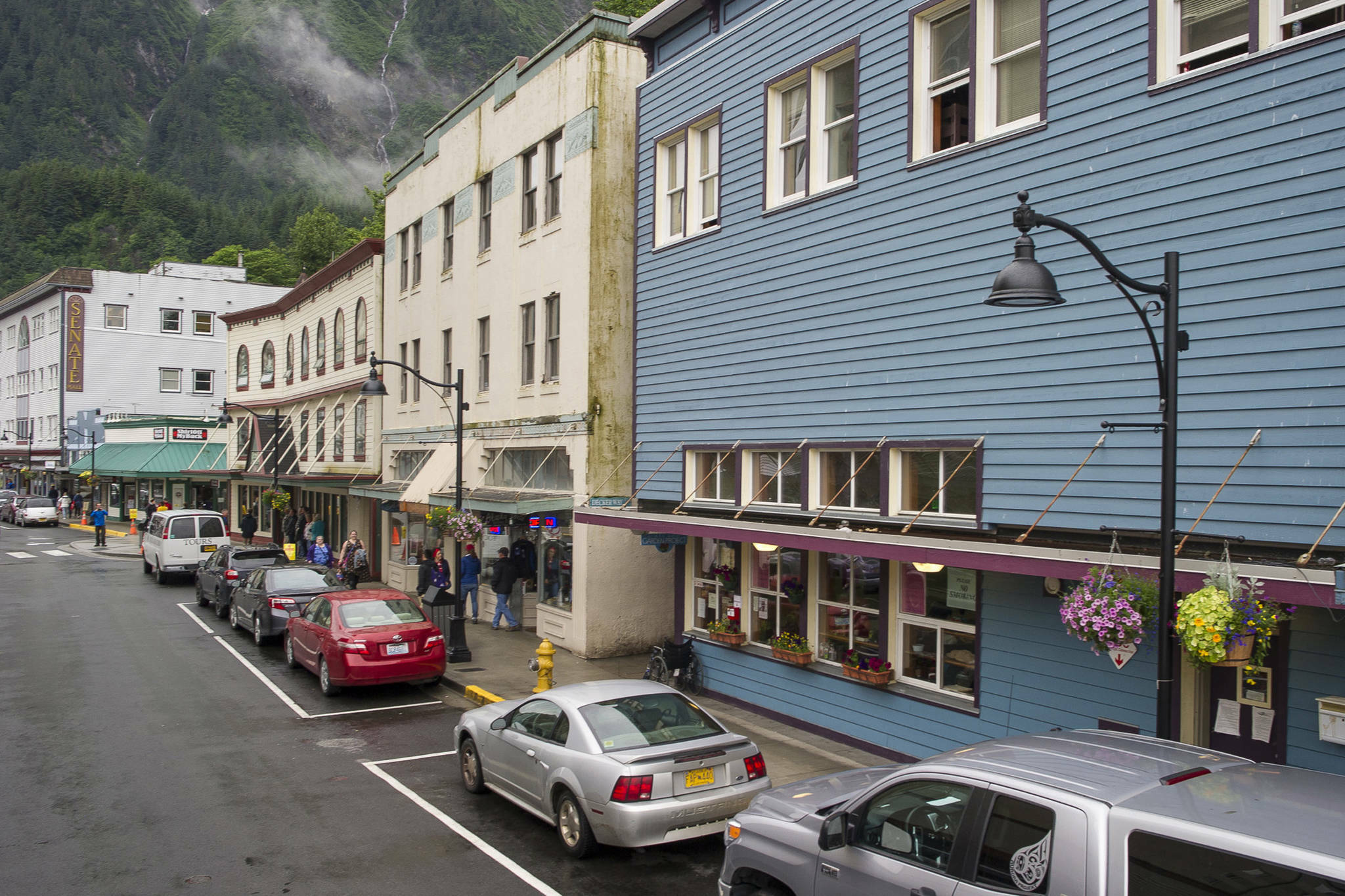After a year of fighting City Hall the Glory Hall has finally prevailed in its effort to convert its former downtown shelter into low-income housing.
The Juneau Planning Commission unanimously approved a conditional use permit for the building at 247 S. Franklin St. following a meeting Tuesday night where more than two dozen people, many of them homeless or advocates for the homeless, spoke in favor of the project. The city’s Community Development Department has repeatedly challenged past actions by the commission to advance the project, but the department’s leader said further appeals are unlikely.
“I really had no idea what was going to happen and I’m so happy what did happen,” Chloe Papier, interim executive director of The Glory Hall, said Wednesday. “We were really really moved by how many people came out to express support.”
A building permit and other administrative steps are still required, but no difficulties are expected with those, said Mary Alice McKeen, an attorney representing The Glory Hall.
“Now that the Planning Commission has ruled we can the subsequent permits should be approved as a matter of course,” she said.
About 35% of the design work for the project is completed and work on the rest will begin shortly Papier said. An agreement with local contractor for the building project has also been reached and that work will hopefully begin during the coming months.
“The building season for our project is winter,” she said. “It’s all inside and its possible to park things on South Franklin.”
Such a timeline may allow apartments to be available by next summer, Papier said.
The Glory Hall first proposed the project last October. It would convert the interior of the building — which has space for more than 50 people in several dormitories, several shared bathrooms and a communal kitchen — into seven two-person apartments that each have kitchen and bathroom facilities.
CDD officials denied earlier permit requests from the Glory Hall on the basis city code states construction projects in avalanche and landslide hazard zones can’t increase occupational density. The department’s most recent objections submitted to the Planning Commission for Tuesday’s meeting call the project dangerous as well as illegal.
“The development of a multi-family dwelling in a Mapped Severe Landslide and Avalanche Hazard Area would put residents, including some of the most vulnerable members of the community, in a Mapped Severe Landslide and Avalanche Hazard Zone,” a 331-page report by the department states.
McKeen, during a 10-minute presentation she was allowed during the meeting, rebutted the city’s arguments by stating the building is not in a severe avalanche area and the project actually reduces density by decreasing the roughly 50-person capacity of the shelter to 14 people living the seven apartments.
“CDD presents no evidence that converting the inside of the building will materially affect public health or safety,” she said. “This building has a conditional use permit to operate as a shelter, so currently the Glory Hall could operate as a shelter there. It however, thinks a better use of this property is converting it into seven affordable apartments.”
Public testimony, limited to three minutes per person and all in favor of the project, came from people mostly wearing “Juneau Needs Affordable Housing” T-shirts recently obtained and provided by the Glory Hall.
Among the first to speak was Susan Phipps, a Juneau resident since 1975 who said during her first 11 months here she lived in 13 places including “people’s front rooms, couches and everything.” She said she eventually built a cabin on a small piece of property she bought, but was flooded out recently and during the past ten months has lived in four more places as a result.
“There is not enough affordable housing now for a person like me on my Social Security income with my physical needs,” she said. “I need to be somewhere where I can live and I would support this program wholeheartedly. And I commend the people at the Glory Hall and the other agencies…and everyone who is trying hard to keep people from living in their car.”
Planning Commission members, while asking city and Glory Hall officials various questions about fine points in the avalanche and density language in city code, clearly sided with project supporters during their discussions after presentations and testimony concluded.
“I believe it’s a net increase in public health and safety, as the intention will be reducing the number of people located at that site,” said Travis Arndt, the commission’s clerk, who made the motion to approve the conditional use permit. “We’re working with the Assembly all the time to get more housing downtown. That is exactly what that does.”
A multitude of officials have expressed concerns in recent years about the increasing and unpredictable risk of avalanches and landslides in some developed areas of Juneau, especially with climate change altering historic weather and storm patterns. But planning commission members disagreed with CDD’s assessment of whether converting the former homeless shelter complies with existing city code.
“I think that the regulation or code that we’re talking about tonight was written and implemented with the best intentions, and this just happens to be one of the unintended consequences of that,” said Erik Pedersen, a commission member.
While audience members were told after the planning commission vote that celebrations (as well negative outbursts) are inappropriate while meetings are ongoing, several members did praise members of the public for their participation.
“I also appreciate everybody coming out tonight,” Mathew Bell, a commission member said. “You all look really good in the T-shirts.”
• Contact Mark Sabbatini at mark.sabbatini@juneauempire.com

